Heart Disease
How to submit an article:
- Registered users can submit any published journal article that has a unique DOI (Digital Object Identifier) name or link to Research Hub.
- For example, you can paste the full DOI link:
https://doi.org/10.1109/5.771073or just the DOI name:10.1109/5.771073into the field above and click submit. - The person who is first to submit a valid article to Research Hub will forever be credited for it, and every article submission earns you +6 Research Points.
Also known as: CHD, Coronary Heart Disease
Related Topics
Published research studies are articles that present the findings of original research that has undergone a peer-review process and has been made publicly available in scholarly journals, books or other media.

Effects of tart cherry juice consumption on cardio-metabolic risk factors: A systematic review and meta-analysis of randomized-controlled trials
2022 Dec Complementary Therapies in Medicine Moosavian SP, Maharat M, Chambari M, Moradi F, Rahimlou M
Systematic Review Meta-Analysis Blood Sugar Type 2 Diabetes Heart Disease Cardiovascular Disease CherryTart cherry juice shows promise in aiding blood sugar control and supporting heart health, highlighting its potential as a natural dietary addition.

Therapeutic mechanism of Curcuma aromatica Salisb. rhizome against coronary heart disease based on integrated network pharmacology, pharmacological evaluation and lipidomics
2022 Aug 09 Frontiers in Pharmacology Fei C, Ji D, Tong H, Li Y, Su L, Qin Y, et al.
This study reveals the characteristics of multi-component and multi-pathway of Curcuma aromatica Salisb. rhizome (CASR) in the treatment of coronary heart disease (CHD), which provides a basis for the follow-up development and utilization of CASR.
Network Pharmacology Turmeric Heart Disease
Evidence and Characteristics of Traditional Chinese Medicine for Coronary Heart Disease Patients With Anxiety or Depression: A Meta-Analysis and Systematic Review
2022 May 05 Frontiers in Pharmacology Wang B, Teng Y, Li Y, Lai S, Wu Y, Chen S, et al.
Systematic Review Meta-Analysis Depression Anxiety Cardiovascular Disease Heart Disease AnginaChinese herbal medicine shows evident efficacy in treating coronary heart disease patients with anxiety or depression, notably improving symptoms of angina pectoris.
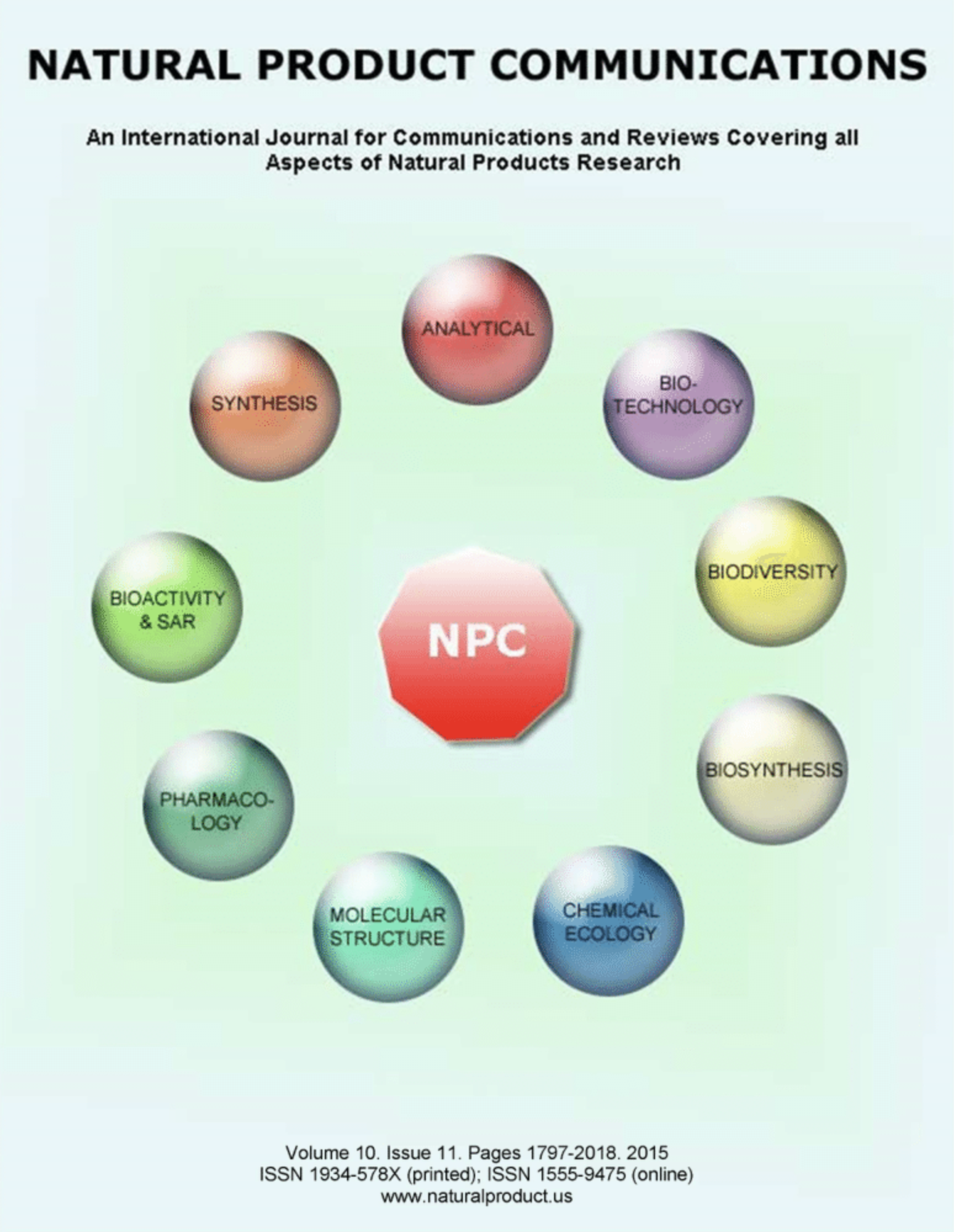
Network Pharmacology Integrated with Molecular Docking Elucidates the Mechanism of Wuwei Yuganzi San for the Treatment of Coronary Heart Disease
2022 Apr Natural Product Communications Zhang Q, Guo Y, Zhang D
The network pharmacology and molecular docking study elucidated basically the mechanism of Wuwei Yuganzi San (WYS) in the treatment of coronary heart disease (CHD).
Network Pharmacology Wu Wei Yu Gan Zi San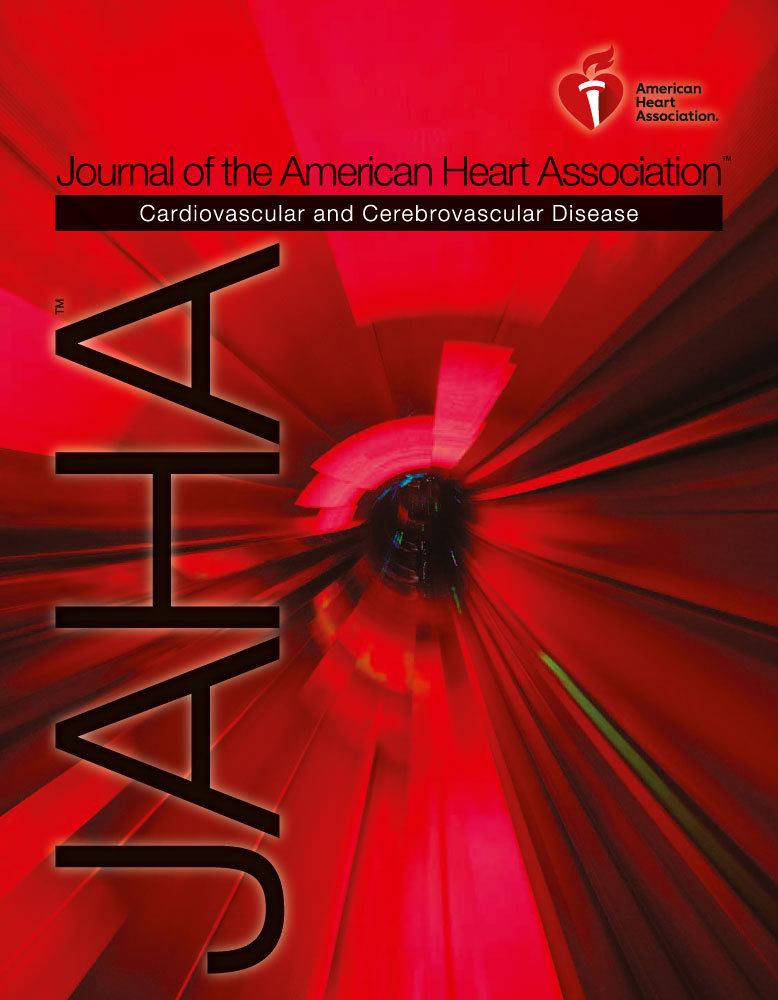
Avocado Consumption and Risk of Cardiovascular Disease in US Adults
2022 Apr 05 Journal of the American Heart Association Pacheco LS, Li Y, Rimm EB, Manson JAE, Sun Q, Rexrode K, et al.
Cohort Study Heart Disease Avocado Cardiovascular DiseaseEating more avocados, specifically two servings a week, is associated with a significantly lesser risk of cardiovascular disease and coronary heart disease.
Research insights are moderated by the Research Hub team and offer an at-a-glance overview of interesting research findings.

2022 Complementary Therapies in Medicine
Tart cherry juice shows promise in aiding blood sugar control and supporting heart health, highlighting its potential as a natural dietary addition.
Systematic Review Blood Sugar Cardiovascular Disease Cherry Type 2 Diabetes
Effects of tart cherry juice consumption on cardio-metabolic risk factors: A systematic review and meta-analysis of randomized-controlled trials
Moosavian SP, Maharat M, Chambari M, Moradi F, Rahimlou M

2022 Frontiers in Pharmacology
Chinese herbal medicine shows evident efficacy in treating coronary heart disease patients with anxiety or depression, notably improving symptoms of angina pectoris.
Systematic Review Angina Anxiety Cardiovascular Disease Depression
Evidence and Characteristics of Traditional Chinese Medicine for Coronary Heart Disease Patients With Anxiety or Depression: A Meta-Analysis and Systematic Review
Wang B, Teng Y, Li Y, Lai S, Wu Y, Chen S, et al.

2022 Journal of the American Heart Association
Eating more avocados, specifically two servings a week, is associated with a significantly lesser risk of cardiovascular disease and coronary heart disease.
Cohort Study Avocado Cardiovascular Disease
Avocado Consumption and Risk of Cardiovascular Disease in US Adults
Pacheco LS, Li Y, Rimm EB, Manson JAE, Sun Q, Rexrode K, et al.

2022 Reference Series in Phytochemistry
Coconut water possesses unique compound profiles that imbue it with a broad spectrum of medical properties, incorporating aspects of nutrition, pharmacology, and disease prevention.
Review Article Cardiovascular Disease Coconut Water High Blood Pressure Osteoporosis
Health Benefits of Coconut Water
Rethinam P, Krishnakumar V
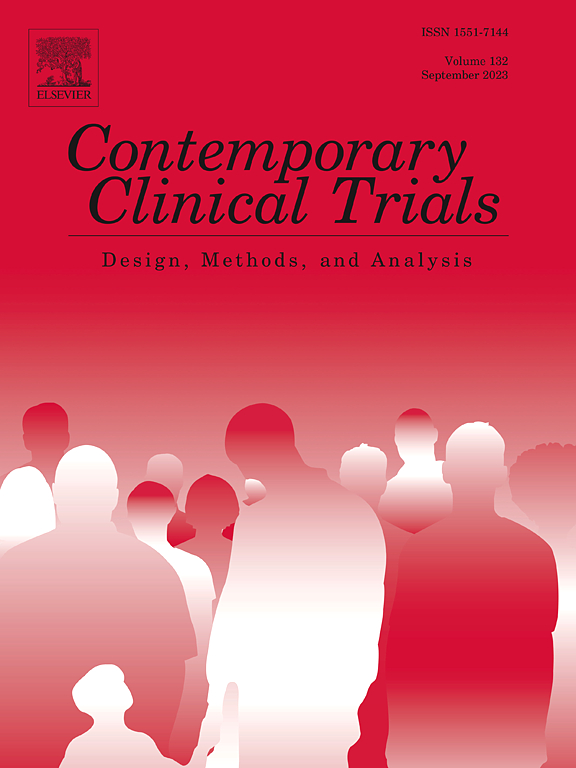
2021 Contemporary Clinical Trials
Consumption of one avocado per day can potentially reduce visceral adiposity and subsequently decrease the risk of diabetes and cardiovascular disease.
Randomised Controlled Trial Avocado Cardiometabolic Disease Cardiovascular Disease Habitual Diet Obesity
The design and rationale of a multi-center randomized clinical trial comparing one avocado per day to usual diet: The Habitual Diet and Avocado Trial (HAT)
Reboussin DM, Kris-Etherton PM, Lichtenstein AH, Li Z, Sabate J, Matthan NR, et al.
Review Articles
Review articles summarise and critically evaluate the current state of research on a specific topic or field by synthesising multiple primary research studies.

Effects of tart cherry juice consumption on cardio-metabolic risk factors: A systematic review and meta-analysis of randomized-controlled trials
2022 Dec Complementary Therapies in Medicine Moosavian SP, Maharat M, Chambari M, Moradi F, Rahimlou M
Systematic Review Meta-Analysis Blood Sugar Type 2 Diabetes Heart Disease Cardiovascular Disease CherryTart cherry juice shows promise in aiding blood sugar control and supporting heart health, highlighting its potential as a natural dietary addition.

Evidence and Characteristics of Traditional Chinese Medicine for Coronary Heart Disease Patients With Anxiety or Depression: A Meta-Analysis and Systematic Review
2022 May 05 Frontiers in Pharmacology Wang B, Teng Y, Li Y, Lai S, Wu Y, Chen S, et al.
Systematic Review Meta-Analysis Depression Anxiety Cardiovascular Disease Heart Disease AnginaChinese herbal medicine shows evident efficacy in treating coronary heart disease patients with anxiety or depression, notably improving symptoms of angina pectoris.

Health Benefits of Coconut Water
2022 Jan Reference Series in Phytochemistry Rethinam P, Krishnakumar V
Review Article Cardiovascular Disease Coconut Water High Blood Pressure OsteoporosisCoconut water possesses unique compound profiles that imbue it with a broad spectrum of medical properties, incorporating aspects of nutrition, pharmacology, and disease prevention.
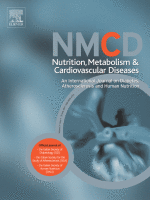
Coffee consumption and cardiovascular diseases and mortality in patients with type 2 diabetes: A systematic review and dose–response meta-analysis of cohort studies
2021 Aug Nutrition, Metabolism and Cardiovascular Diseases Shahinfar H, Jayedi A, Khan TA, Shab-Bidar S
Systematic Review Meta-Analysis Type 2 Diabetes Coffee Cardiovascular DiseaseDrinking coffee may be linked to lower mortality risk in type 2 diabetes patients.
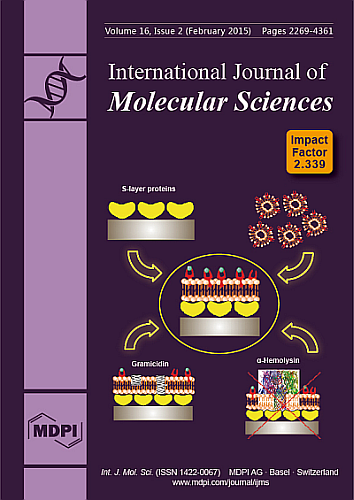
Utilization of Isoflavones in Soybeans for Women with Menopausal Syndrome: An Overview
2021 Mar 22 International Journal of Molecular Sciences Chen LR, Chen KH
Systematic Review Review Article Osteoporosis Hot Flushes Soybean High Blood Pressure MenopauseIsoflavones found in soybeans can reduce risks of certain cancers and alleviate menopause-related symptoms among women, such as vasomotor syndromes, spinal bone loss, and hypertension.
Clinical Trials
Clinical trials are research studies that involve people and are conducted to evaluate the safety and efficacy of new treatments or interventions, such as drugs, medical devices, or behavioural therapies.

The design and rationale of a multi-center randomized clinical trial comparing one avocado per day to usual diet: The Habitual Diet and Avocado Trial (HAT)
2021 Nov Contemporary Clinical Trials Reboussin DM, Kris-Etherton PM, Lichtenstein AH, Li Z, Sabate J, Matthan NR, et al.
Randomised Controlled Trial Heart Disease Type 2 Diabetes Avocado Cardiometabolic Disease Cardiovascular Disease Visceral Fat Habitual Diet ObesityConsumption of one avocado per day can potentially reduce visceral adiposity and subsequently decrease the risk of diabetes and cardiovascular disease.
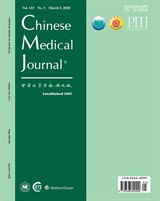
The Efficacy and Safety of Wenxin Keli in Patients with Frequent Premature Ventricular Contractions
2015 Oct 05 Chinese Medical Journal Hua W, Gao RL, Zhao BC, Wang J, Chen XH, Cai C, et al.
Wenxin Keli treatment effectively reduced the overall number of premature ventricular contractions (PVCs) and alleviated PVC-related symptoms in patients without structural heart diseases and had no severe side effects.
Randomised Controlled Trial Premature Ventricular Contractions Wen Xin Ke Li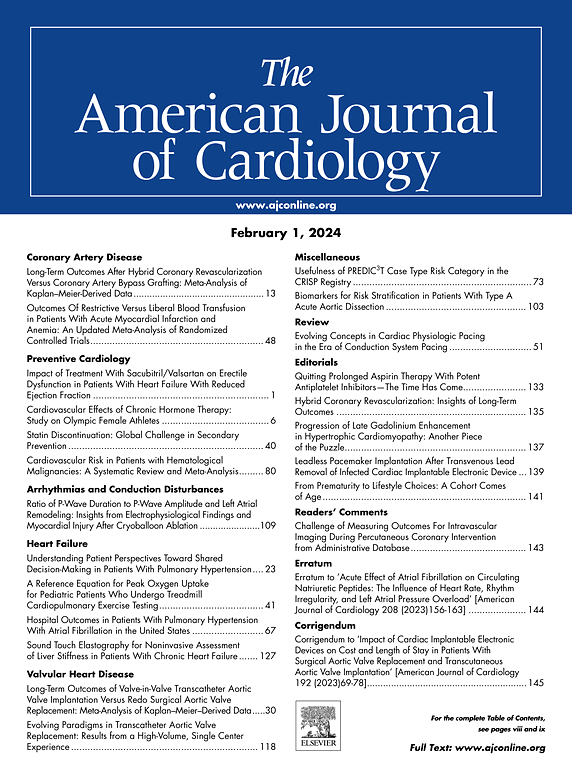
Effects of Consumption of Pomegranate Juice on Carotid Intima–Media Thickness in Men and Women at Moderate Risk for Coronary Heart Disease
2009 Oct The American Journal of Cardiology Davidson MH, Maki KC, Dicklin MR, Feinstein SB, Witchger MS, Bell M, et al.
Randomised Controlled Trial Experimental Study Pomegranate Heart DiseasePomegranate juice consumption doesn't significantly affect overall progress of carotid intima-media thickness, but may slow its progression in subjects with high oxidative stress and lipid issues.
Study Protocols
Published study protocols are detailed plans that outline the objectives, methodology, statistical analyses, and organisation of a research study that have been made publicly available for others to review and use as a reference.
Presentation Slides

Systematic Review
Tart cherry juice shows promise in aiding blood sugar control and supporting heart health, highlighting its potential as a natural dietary addition.
Moosavian SP, Maharat M, Chambari M, Moradi F, Rahimlou M

Systematic Review
Chinese herbal medicine shows evident efficacy in treating coronary heart disease patients with anxiety or depression, notably improving symptoms of angina pectoris.
Wang B, Teng Y, Li Y, Lai S, Wu Y, Chen S, Li T, Han X, Zhou H, Wang Y, Lu Z, Li H, Ding Y, Ma L, Zhao M, Wang X

Cohort Study
Eating more avocados, specifically two servings a week, is associated with a significantly lesser risk of cardiovascular disease and coronary heart disease.
Pacheco LS, Li Y, Rimm EB, Manson JAE, Sun Q, Rexrode K, Hu FB, Guasch‐Ferré M

Review Article
Coconut water possesses unique compound profiles that imbue it with a broad spectrum of medical properties, incorporating aspects of nutrition, pharmacology, and disease prevention.
Rethinam P, Krishnakumar V

Randomised Controlled Trial
Consumption of one avocado per day can potentially reduce visceral adiposity and subsequently decrease the risk of diabetes and cardiovascular disease.
Reboussin DM, Kris-Etherton PM, Lichtenstein AH, Li Z, Sabate J, Matthan NR, Petersen K, Rajaram S, Vitolins M, Ford N

Systematic Review
Drinking coffee may be linked to lower mortality risk in type 2 diabetes patients.
Shahinfar H, Jayedi A, Khan TA, Shab-Bidar S

Systematic Review
Isoflavones found in soybeans can reduce risks of certain cancers and alleviate menopause-related symptoms among women, such as vasomotor syndromes, spinal bone loss, and hypertension.
Chen LR, Chen KH
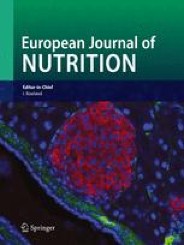
Systematic Review
Consumption of chocolate shows a possible slight reduction in risk for coronary heart disease and stroke, with no association with other chronic diseases studied.
Morze J, Schwedhelm C, Bencic A, Hoffmann G, Boeing H, Przybylowicz K, Schwingshackl L

Systematic Review
Cocoa consumption has strong beneficial impacts on cardiovascular health, reducing blood pressure, improving vascular function, and modulating lipid and glucose metabolism.
Ludovici V, Barthelmes J, Nägele MP, Enseleit F, Ferri C, Flammer AJ, Ruschitzka F, Sudano I

Systematic Review
Moderate chocolate consumption (up to 6 servings per week) is linked to a decreased risk of coronary heart disease, stroke, and diabetes, according to a meta-analysis of prospective studies.
Yuan S, Li X, Jin Y, Lu J
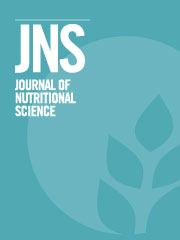
Systematic Review
Almond consumption effectively reduces blood lipid levels, thus reducing risk of heart disease.
Musa-Veloso K, Paulionis L, Poon T, Lee HY

Randomised Controlled Trial
Pomegranate juice consumption doesn't significantly affect overall progress of carotid intima-media thickness, but may slow its progression in subjects with high oxidative stress and lipid issues.
Davidson MH, Maki KC, Dicklin MR, Feinstein SB, Witchger MS, Bell M, McGuire DK, Provost JC, Liker H, Aviram M
Executive Summary
Write an executive summary in the form of a blog article on the topic of "Research into Chinese medicine treatment for Heart Disease" summarising the research below and using language that can be easily understood by patients and avoiding medical jargon using a professional and caring tone of voice.
Write an executive summary in the form of a blog article on the topic of "Researched Chinese medicine treatments for Heart Disease" summarising the research below in an objective and easy to understand way, and using language that can be easily understood by patients. Group the article into Chinese medicine treatments first, followed by nutrition and other treatments. Avoid using medical jargon and use a professional and caring tone of voice.
Write me a concise but easy to understand executive summary on the topic of "Chinese medicine treatments for Heart Disease" based on the following research that I will give you. Your summary should be 2 paragraphs long in Australian English spelling and include references to the studies.
A Systematic Review published in 2022 in the journal Complementary Therapies in Medicine found that Tart cherry juice shows promise in aiding blood sugar control and supporting heart health, highlighting its potential as a natural dietary addition. Tart cherry juice was found to lower fasting blood sugar but didn't have a significant impact on blood pressure, insulin, cholesterol, body fat, or weight. It is rich in antioxidants, which may be why it's beneficial for the heart. Changes in gut bacteria might also play a role. More research with larger and varied groups of people is needed to confirm these findings and understand them better. In the meantime, healthcare professionals may consider suggesting tart cherry juice for heart health.
A Systematic Review published in 2022 in the journal Frontiers in Pharmacology found that Chinese herbal medicine shows evident efficacy in treating coronary heart disease patients with anxiety or depression, notably improving symptoms of angina pectoris. Method: The study was conducted through a systematic approach, wherein literature search was performed based on certain screening studies. Information was extracted by two researchers who independently assessed the quality of the articles. These articles covered numerous studies concerning the active ingredients of Chinese herbal medicine utilized for treating coronary heart disease accompanied by anxiety or depression. The analysis of this data was performed through network pharmacology. Results: According to 32 chosen studies, Chinese herbal medicine was found to be markedly beneficial in treating anxiety or depression in patients who also had coronary heart disease. This was true in comparison to blank control groups, and the efficacy of Chinese herbal medicine appeared not to be inferior to that of Western medicine. Chinese herbal medicine also significantly enhanced angina stability. Observations after usage of Chinese herbal medicine demonstrated similar trends in terms of angina frequency and electrocardiogram analysis. From the network pharmacology viewpoint, a set of certain compounds were found to possess the greatest correlation to the pathological targets of coronary heart disease, anxiety, and depression. Anti-damage or apoptosis, anti-inflammation, oxidative stress reduction, and maintaining neurotransmitter homeostasis were believed to be the principal functional mechanisms.
A Cohort Study published in 2022 in the journal Journal of the American Heart Association found that Eating more avocados, specifically two servings a week, is associated with a significantly lesser risk of cardiovascular disease and coronary heart disease. The research analysis included 68,786 women from the Nurses' Health Study and 41,701 men from the Health Professionals Follow-up Study, who were free of cancer, coronary heart disease, and stroke at the start. Their diet was assessed using validated food frequency questionnaires at the start and then every four years. The researchers used Cox proportional hazards regressions to estimate hazard ratios. Over three decades of follow-up, 14,274 new cases of cardiovascular disease were documented, including 9,185 coronary heart disease events and 5,290 strokes. After adjusting for lifestyle and other dietary factors, it was found that compared to non-consumers, those who had higher avocado intake exhibited a lower risk of cardiovascular disease and coronary heart disease. No significant associations for stroke were detected. Furthermore, it was noted that replacing half a serving per day of certain fatty foods with equivalent amounts of avocado was linked with lower risk of cardiovascular disease.
A Review Article published in 2022 in the journal Reference Series in Phytochemistry found that Coconut water possesses unique compound profiles that imbue it with a broad spectrum of medical properties, incorporating aspects of nutrition, pharmacology, and disease prevention. The study utilized comprehensive analysis to assess the chemical profile of coconut water, identifying a range of components including phytohormones, enzymes, antioxidant compounds, vitamins, minerals, and phenolic compounds. These components are known to contribute to the water's biological activity and pharmacological effects, thereby enabling a raft of medicinal properties inherent to coconut water. The water was found to feature anti-microbial, anti-bacterial, anti-inflammatory, anti-hypertensive, rejuvenating, hepatoprotective, hypolipidemic, and diuretic properties. An examination of the therapeutic effects of coconut water revealed a significant impact on gastric dysfunction, dysentery, and child malnutrition alongside notable capabilities to manage hypertension. The water was found to promote exercise performance, reduce swelling, dissolve kidney stones, improve kidney function, improve digestion, relieve constipation, reduce the risk of heart disease, lower high blood pressure, and improve cholesterol levels. Consumption of tender coconut water was specifically found to reduce the risk of heart disease, help prevent Alzheimer’s disease pathologies and prevent osteoporosis in experimental animals. The unique nutritional profile of coconut water was also found to provide it with the capacity to balance body chemistry and fight cancer.
A Randomised Controlled Trial published in 2021 in the journal Contemporary Clinical Trials found that Consumption of one avocado per day can potentially reduce visceral adiposity and subsequently decrease the risk of diabetes and cardiovascular disease. The Habitual Diet and Avocado Trial was a multicenter, randomized, controlled study that evaluated the impact of daily avocado consumption over a period of six months. The experiment involved a large and diverse cohort. Participants were required to incorporate a daily avocado into their diet as a substitute for their regular dietary intake, notably those devoid of avocado consumption. Their progress was measured using magnetic resonance imaging (MRI) to ascertain the potential decrease in visceral adiposity, with individuals with increased waist circumference being the primary focus of the study. Additional measures such as hepatic lipid content, plasma lipid profiles, blood pressure and high sensitivity C-reactive protein were also part of the evaluation. The study showed promising results in terms of weight control and reduction of visceral adiposity among participants. Initial results suggest that the sense of satiety post avocado consumption may subsequently lead to an overall decrease in energy intake. Moreover, the daily consumption of avocados was observed to not only reduce visceral fat but also display potential benefits impacting cardiometabolic disease risk. The benefits of avocado consumption were notably apparent among a cohort with an increased waist circumference, thus confirming the potential health benefits of avocados in weight management and risk reduction of obesity-related diseases.
A Systematic Review published in 2021 in the journal Nutrition, Metabolism and Cardiovascular Diseases found that Drinking coffee may be linked to lower mortality risk in type 2 diabetes patients. In this study, the researchers conducted an exhaustive literature search through PubMed, Scopus, and Web of Sciences up to November 2020. They were looking for prospective cohort studies that evaluated the link between coffee consumption and the risk of cardiovascular disease and mortality in patients with type 2 diabetes. Two reviewers took on the work of extracting relevant data and assessing the certainty of evidence using the GRADE approach. A random-effects model was deployed to estimate hazard ratios. Dose-response connections were modeled using a one-stage mixed-effects meta-analysis. The researchers included ten prospective cohort studies that totalled 82,270 cases. The results showed an interesting trend: compared to those who did not consume coffee, the hazard ratios were consistently lower for mortality outcomes and cardiovascular disease, especially where the consumption rate was four cups per day. Importantly, no such association was found for either cancer mortality or stroke. The evidence suggested a potential inverse monotonic association between coffee drinking and mortality across all causes and cardiovascular disease, alongside a linear association for coronary heart disease and total cardiovascular events. The degree of certainty in these results was moderate for all-cause mortality, but was low or very low for all other reported outcomes.
A Systematic Review published in 2021 in the journal International Journal of Molecular Sciences found that Isoflavones found in soybeans can reduce risks of certain cancers and alleviate menopause-related symptoms among women, such as vasomotor syndromes, spinal bone loss, and hypertension. The study overviewed soybeans' chemical composition and focused mainly on isoflavones. The research examined the processes of soybean preparation that includes cleaning, drying, crushing, and dehulling, and extraction methods to derive various soy products, particularly focusing on isoflavones - daidzein, genistein, and S-equol. Various soy products such as refined soy oil, soy lecithin, free fatty acids, glycerol, and soybean meal were discussed, along with the presence of the minor biological constituents in remaining components. The study explored the relationship between isoflavone consumption and disease prevention, particularly in relation to heart disease, cancer incidence—of the breast, bladder, and endometrial and colorectal—and menopause-related symptoms. The therapeutic effects of isoflavones were studied in the context of vasomotor syndromes, spinal bone loss, hypertension regulation, depressive symptoms during pregnancy, and in vitro glycemic control. In contrast, it failed to find definitive effects of isoflavones on cognition improvement and urogenital symptoms. The inconsistencies in defining the ingredients, doses, study durations, and outcomes of isoflavone studies proved challenging for the research.
A Systematic Review published in 2019 in the journal European Journal of Nutrition found that Consumption of chocolate shows a possible slight reduction in risk for coronary heart disease and stroke, with no association with other chronic diseases studied. Researchers analyzed information available up to July 2018 from PubMed, Embase, and Web of Science, focusing on prospective studies evaluating the correlation between chocolate intake and rates of all-cause mortality, coronary heart disease, stroke, heart failure, type 2 diabetes, colorectal cancer, and hypertension. Meta-analyses using random-effects models were performed, comparing highest and lowest intake categories, and applying linear and non-linear dose-response studies. The NutriGrade scoring system was utilized to assess the credibility of the evidence obtained. The study's findings were based on 27 identified investigations. It was discovered through linear dose-response meta-analyses that there were no associations of heart failure and type 2 diabetes with each 10 g/day increase in chocolate intake. A small inverse association was found for the risk of coronary heart disease and stroke with each 10 g/day increase in chocolate consumption. The credibility of the evidence was found to be either very low (for all-cause mortality, heart failure, type 2 diabetes, colorectal cancer, or hypertension) or low (for coronary heart disease, stroke).
A Systematic Review published in 2017 in the journal Frontiers in Nutrition found that Cocoa consumption has strong beneficial impacts on cardiovascular health, reducing blood pressure, improving vascular function, and modulating lipid and glucose metabolism. In the study's methodology, the link between the consumption of natural polyphenol-rich foods, specifically cocoa, and a decreased risk of cardiovascular diseases was explored. The process involved evaluating cocoa's influence on various aspects, such as blood pressure reduction, vascular function improvement, lipid and glucose metabolism modulation, and reduction of platelet aggregation. This evaluation was performed in varying demographic groups, including healthy individuals, individuals with risk factors such as diabetes and arterial hypertension, and individuals with established coronary heart diseases or heart failure. The study's findings indicate that cocoa's consumption has a significant and positive effect on cardiovascular health. Notably, it was found to reduce blood pressure, enhance vascular function, and modulate lipid and glucose metabolism. These beneficial effects were observed in all the subjects irrespective of their health status - healthy, at risk, or with established cardiovascular diseases. The results hypothesize several potential mechanisms through which cocoa exerts these positive effects, including the activation of nitric oxide synthase, increased availability of nitric oxide, and inherent antioxidant and anti-inflammatory properties.
A Systematic Review published in 2017 in the journal Nutrients found that Moderate chocolate consumption (up to 6 servings per week) is linked to a decreased risk of coronary heart disease, stroke, and diabetes, according to a meta-analysis of prospective studies. The meta-analysis included 14 prospective studies with a total of 508,705 participants, spanning follow-up durations of 5 to 16 years. The systematic search covered PubMed and Embase through March 2017. Relative risks (RRs) and 95% confidence intervals (CIs) were pooled using random effect models. The study explored the association between chocolate intake and the risk of CHD, stroke, and diabetes, analyzing data on the highest versus lowest chocolate consumption. The findings indicate that higher chocolate consumption is associated with a reduced risk of CHD, stroke, and diabetes. The relationship follows a nonlinear pattern, with little additional risk reduction observed when consuming chocolate beyond 3 servings per week for CHD and stroke. For diabetes, the peak protective effect emerged at 2 servings per week, with no additional benefit noted beyond 6 servings per week. The study suggests that consuming chocolate in moderation (up to 6 servings per week) may be optimal for preventing these cardiometabolic disorders.
A Systematic Review published in 2016 in the journal Journal of Nutritional Science found that Almond consumption effectively reduces blood lipid levels, thus reducing risk of heart disease. The researchers carried out a systematic review and meta-analysis drawing on data from controlled randomised trials. Their search of the scientific literature led them to a total of eighteen relevant publications and twenty-seven datasets, which offered a comparison between almond consumption and a control group. They then unified the studies by pooling the mean differences in the effects on each blood lipid parameter using a random-effects model. The analysis found that consuming almonds had a marked beneficial effect on levels of total cholesterol, LDL-cholesterol and TAG (triacylglycerol). However, it did not significantly affect HDL-cholesterol levels. This supports data from previous observational and large-scale interventional studies that showed nut consumption reduces the risk of heart disease. This goes to show that including nuts in a balanced diet is advisable for maintaining healthy blood lipid levels and preventing heart disease.
A Randomised Controlled Trial published in 2009 in the journal The American Journal of Cardiology found that Pomegranate juice consumption doesn't significantly affect overall progress of carotid intima-media thickness, but may slow its progression in subjects with high oxidative stress and lipid issues. In the study, a randomized, double-blind, parallel trial was carried out to assess the impact of daily consumption of pomegranate juice on carotid intima-media thickness progression rates in subjects moderately at risk for coronary heart disease. The participants consisted of elderly men and women who already had one or more major risk factors for the disease. Half of the participants were given 240 ml of pomegranate juice daily to consume for a period of up to 18 months, while the other half were provided with a control beverage. The findings of the trial showed no significant difference in carotid intima-media thickness progression rates between the two groups who consumed pomegranate juice and the control beverage respectively. However, in-depth analyses revealed that among individuals with the highest tertiles for baseline serum lipid peroxides, triglycerides, high-density lipoprotein cholesterol and other factors, those in the pomegranate juice group had experienced notably less progression of carotid intima-media thickness.
Moderation Tools
Topic
Sign In
Users not signed in are limited to viewing the 5 most recent items of content.